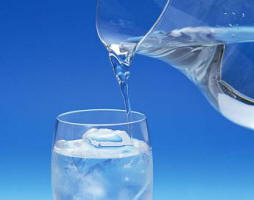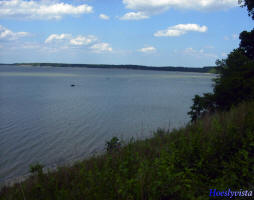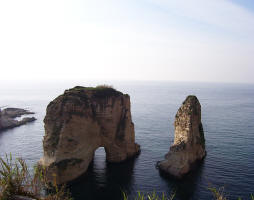 Middle East: $120b to flow into water projects
Middle East: $120b to flow into water projects
The Middle East is set to spend $120 billion upgrading its water
infrastructure over the next ten years, according to industry experts.
The region is home to five per cent of the global population, but has just
one per cent of the world's renewable fresh water. Rapidly rising
populations, particularly in the GCC region, along with greater
industrialisation and construction, are dramatically driving up water
consumption in the region. According to a World Energy Council estimate,
investments in electricity production and water desalination projects in the
region until 2012 will hit a staggering US$120 billion, representing around
seven per cent of the Arab nations' Gross Domestic Product.
The region was faced with a colossal challenge of stepping up electricity
and water supply capabilities in the wake of soaring demand and more
importantly, the difficult task of water conservation employing new
technologies, speakers at the eighth Gulf water Conference and Exhibition
organised by the water, Science and Technology Association, Bahrain's
Electricity and water Authority and GCC General Secretariat said
yesterday.
The event being held under the theme, 'water in the GCC, towards an optional
planning and economic perspective' brought together experts in water
technology from across the world to discuss water strategies and national
planning, water economics and finance, natural water resources,
non-conventional water resources and public awareness, conservation and
capacity building.
To meet the growing drinking water demand from 3.9 billion cubic metres in
1999 to 8.8 billion cubic metres by 2010, GCC governments had turned to
desalination in a big way. The six GCC states collectively spent more than
$40 billion on building around 550 seawater desalination plants over the
last 25 years.
Lisa Henthorne, President, International Desalination Association, said the
region accounted for 50 per cent of the desalination facilities in the
entire globe. Desalination costs rose drastically in the last five years
owing to steep increase in cost of material inputs. "Demand too was rising
fast with population exploding." "Bahrain continues to invest heavily in its
desalination capacity, as well as water distribution facilities. We have to
cope with rising consumption and production costs while maintaining
subsidisation of its services," said Works Minister Fahmi Al Jowder. A
staggering BD215 million were being pumped into improving drinking water
facilities in the Kingdom in the next decade, more than double that was
spent in the past 10 years while desalination projects would get BD400
million in the coming 10 years.
Al Jowder hailed the cooperation between the private and government sectors
in Bahrain which, he hoped, would ensure the success of Al Dour electricity
and water production station project.
| Contact information |
© Bahrain Tribune 2008,By K.V.S. Madhav Senior Business Reporter
|
|---|---|
| News type | Inbrief |
| File link | n/a |
| Source of information | © Bahrain Tribune 2008 |
| Keyword(s) | desalination |
| Subject(s) | DRINKING WATER AND SANITATION : COMMON PROCESSES OF PURIFICATION AND TREATMENT , FINANCE-ECONOMY , INFRASTRUCTURES , MEASUREMENTS AND INSTRUMENTATION , POLICY-WATER POLICY AND WATER MANAGEMENT , SANITATION -STRICT PURIFICATION PROCESSES , WATER QUALITY |
| Geographical coverage | Middle East, Bahrain |
| News date | 01/04/2008 |
| Working language(s) | ENGLISH |
 you are not logged in
you are not logged in





